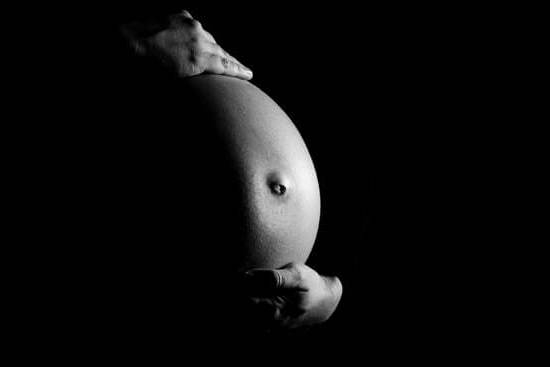Is fatigue a sign of pregnancy? Understanding the relationship between fatigue and pregnancy is crucial for expectant mothers. Fatigue is a common symptom experienced by many pregnant women, often attributed to the physical, hormonal, and emotional changes that come with carrying a child. This article will delve into the reasons behind this phenomenon, from hormonal shifts to bodily changes, as well as providing insights on how to manage fatigue during pregnancy.
Pregnancy can be an exhilarating yet exhausting journey for women, with fatigue being a prevalent issue during this time. It is important to differentiate between normal tiredness and the overwhelming sense of exhaustion that can accompany pregnancy. Hormonal fluctuations play a significant role in causing fatigue in pregnant women. The surge in progesterone levels and other hormonal changes can lead to increased drowsiness and weariness.
Additionally, physical changes in pregnancy such as increased blood volume, heart rate, metabolism, and carrying the extra weight of the baby can all contribute to feeling constantly drained. The emotional rollercoaster that often comes with pregnancy – including stress, mood swings, and anxiety – can further exacerbate feelings of fatigue. By understanding these factors, expecting mothers can better navigate their way through managing the exhaustion that may come with carrying a child.
Understanding Fatigue
Fatigue during pregnancy is a common symptom that many expectant mothers experience. Understanding what fatigue is and how it differs from normal tiredness can help women navigate this challenging aspect of their pregnancy journey. Fatigue is more than just feeling tired – it is an overwhelming sense of exhaustion that can impact a woman’s ability to carry out daily tasks and activities.
To differentiate between fatigue and regular tiredness, here are some key characteristics of fatigue:
- • Feeling constantly drained, even after getting enough rest
- • Experiencing physical and mental fatigue that does not improve with rest or sleep
- • Feeling like your energy levels are consistently low throughout the day
While it is normal for pregnant women to feel more tired than usual due to the physical demands of carrying a baby, experiencing extreme exhaustion that interferes with daily functioning may be a sign of pregnancy-related fatigue. It is essential for women to listen to their bodies and recognize when they may need extra support or rest during this time.
Hormonal Changes in Pregnancy
Hormonal changes play a crucial role in pregnancy, and they can have a significant impact on a woman’s energy levels. One of the key hormones involved in pregnancy is progesterone, which increases rapidly after conception.
This hormone is essential for maintaining a healthy pregnancy as it helps to relax the muscles of the uterus and prevent contractions that could lead to miscarriage. However, elevated levels of progesterone can also contribute to fatigue as it has a sedating effect on the body.
In addition to progesterone, other hormones like estrogen and human chorionic gonadotropin (hCG) also increase during pregnancy. These hormonal fluctuations can disrupt the normal sleep-wake cycle and result in disrupted or poor-quality sleep, further exacerbating feelings of tiredness and fatigue. Furthermore, these hormonal changes can lead to other symptoms like nausea and frequent urination, which can also impact a woman’s energy levels during pregnancy.
It is important for pregnant women to recognize that fatigue is not just a physical symptom but can also be influenced by hormonal imbalances. Understanding the role hormones play in pregnancy-related fatigue can help women better cope with these feelings of exhaustion. Implementing strategies such as getting regular exercise, eating balanced meals, staying hydrated, and taking short naps can help manage fatigue and support overall well-being during this special time.
| Hormonal Changes | Effect on Fatigue |
|---|---|
| Progesterone | Has a sedating effect on the body |
| Estrogen & hCG | Disrupt sleep-wake cycle leading to tiredness |
Physical Changes in Pregnancy
During pregnancy, a woman’s body undergoes numerous physical changes to accommodate the growing fetus. These changes can significantly impact energy levels and contribute to feelings of exhaustion. Understanding how these bodily transformations affect fatigue is crucial for pregnant women to manage their symptoms effectively.
Here are some key physical changes in pregnancy that may lead to fatigue:
- Increased blood volume: During pregnancy, a woman’s blood volume increases by up to 50%, putting extra strain on the heart and leading to feelings of fatigue.
- Hormonal fluctuations: Hormones such as progesterone and estrogen play a crucial role in maintaining a healthy pregnancy, but they can also cause drowsiness and lethargy.
- Weight gain: As the fetus grows, a pregnant woman’s body naturally gains weight to support the baby’s development. This added weight can put additional pressure on joints and muscles, leading to increased tiredness.
It is essential for expectant mothers to prioritize self-care during this time and listen to their bodies. Proper nutrition, regular exercise tailored for pregnancy, and sufficient rest are all important factors in managing physical changes that contribute to fatigue. By taking proactive steps to care for themselves, pregnant women can help alleviate feelings of exhaustion during this special time in their lives.
Emotional Impact
During pregnancy, numerous emotional changes can occur due to the hormonal fluctuations and the significant life transition that is taking place. The combination of physical discomfort, uncertainty about the future, changes in relationships, and anxiety about childbirth can all contribute to feelings of fatigue in pregnant women. It is essential to acknowledge that these emotional stressors play a role in how exhausted a pregnant woman may feel.
Pregnancy can evoke a whirlwind of emotions, ranging from joy and excitement to fear and apprehension. Women often experience mood swings during pregnancy, which can be attributed to the fluctuating hormone levels.
The stress of preparing for a new family member, concerns about finances or career prospects, as well as worries about parenting abilities are all valid reasons for feeling emotionally drained during this time. Additionally, lack of sleep due to physical discomfort or frequent trips to the bathroom can further exacerbate emotional exhaustion.
It is crucial for pregnant women to prioritize self-care and seek support when needed to help manage the emotional impact of pregnancy-related fatigue. Engaging in relaxation techniques such as deep breathing exercises, meditation, or prenatal yoga can help alleviate stress and promote emotional well-being.
Seeking therapy or counseling can also be beneficial for processing complex emotions and developing coping strategies. Moreover, maintaining open communication with trusted loved ones and healthcare providers can provide much-needed reassurance and support throughout this journey.
| Emotional Changes During Pregnancy | Contributing Factors |
|---|---|
| Mood swings | Hormonal fluctuations |
| Anxiety about childbirth | Physical discomfort |
| Fear about the future | Changes in relationships |
Other Symptoms
During pregnancy, fatigue is a common symptom that many women experience. However, it is important to note that fatigue can also be accompanied by other symptoms that may indicate a woman is pregnant. One of the most well-known signs of pregnancy is morning sickness, which involves feelings of nausea and vomiting. This can contribute to overall feelings of exhaustion and tiredness in pregnant women.
Changes in Appetite and Food Cravings
Another symptom that often accompanies fatigue during pregnancy is changes in appetite and food cravings. Many women report experiencing unusual cravings for certain foods or aversions to foods they once enjoyed. This shift in appetite can lead to fluctuations in energy levels throughout the day, further exacerbating feelings of fatigue.
Frequent Urination
Frequent urination is another common symptom of pregnancy that may occur alongside fatigue. As the uterus expands and puts pressure on the bladder, pregnant women may find themselves needing to visit the restroom more frequently than usual. This disruption in sleep patterns due to nighttime bathroom trips can contribute to increased tiredness during the day.
Breast Changes
Breast changes, such as tenderness and swelling, are also frequent signs of pregnancy that may be experienced alongside fatigue. Hormonal fluctuations during pregnancy can cause the breasts to become more sensitive and appear larger. These physical changes can add to overall discomfort and tiredness felt by pregnant individuals.
Being aware of these potential symptoms that accompany fatigue can help expectant mothers better understand their bodies during this crucial time. If experiencing any combination of these symptoms along with fatigue, it is essential to consult with a healthcare provider for guidance and support throughout the pregnancy journey.
When to Seek Medical Advice
When experiencing fatigue during pregnancy, it is essential to be aware of when this symptom might indicate a more serious issue that requires medical attention. Fatigue is a common symptom in pregnancy due to the hormonal and physical changes the body undergoes, but in some cases, it could be a sign of an underlying health concern. It is crucial for pregnant women to recognize when their exhaustion is beyond what is considered normal during pregnancy.
Monitoring the Severity of Fatigue
One way to determine if fatigue may be a cause for concern during pregnancy is by monitoring the severity of the exhaustion. Feeling tired and low on energy is expected during this time, but if fatigue becomes overwhelming and interferes with daily activities such as work, household chores, or even personal care, it may be a red flag.
Additionally, if rest and adequate sleep do not alleviate the fatigue, or if it worsens over time rather than improving, it could indicate an underlying issue that requires medical evaluation.
Accompanying Symptoms
Another factor to consider when determining if fatigue during pregnancy warrants medical attention is the presence of other accompanying symptoms. If fatigue is accompanied by symptoms such as severe headaches, shortness of breath, dizziness, chest pain, palpitations, or swelling in the extremities, it may indicate a more serious condition requiring immediate medical assessment. These symptoms could be indicative of conditions like gestational diabetes, preeclampsia, anemia, or thyroid disorders – all of which can impact both maternal and fetal health.
Tips for Managing Fatigue
Fatigue during pregnancy is a common symptom that many women experience. It is normal to feel tired as your body goes through the incredible journey of growing a life inside you. Understanding what fatigue is and how it differs from normal tiredness can help pregnant women better manage this symptom. Fatigue in pregnancy tends to be more intense and persistent, often accompanied by a feeling of overwhelming exhaustion that can be difficult to shake off even with rest.
The hormonal changes that occur during pregnancy can have a significant impact on energy levels, leading to increased fatigue. As your body adjusts to the surge of hormones, especially progesterone, it is not uncommon to feel more tired than usual.
Additionally, the physical changes that accompany pregnancy, such as weight gain, increased blood volume, and changes in metabolism, can also contribute to feelings of exhaustion. These changes put additional strain on your body, which can leave you feeling drained and fatigued.
In addition to hormonal and physical changes, the emotional impact of pregnancy can also play a role in causing fatigue. Pregnancy comes with a mix of emotions ranging from joy and excitement to anxiety and stress. The combination of these emotions can take a toll on your mental well-being, leaving you feeling emotionally exhausted.
Dealing with these emotional ups and downs while navigating the physical challenges of pregnancy can exacerbate feelings of fatigue. To manage fatigue during pregnancy effectively, it is essential for women to prioritize self-care, get plenty of rest, stay hydrated, maintain a healthy diet rich in nutrients, exercise regularly (if cleared by your healthcare provider), and seek support from loved ones or professionals if needed.
Remember that every woman’s experience with fatigue during pregnancy is unique, so listen to your body’s needs and remember that it’s okay to ask for help when necessary.
Frequently Asked Questions
What Does Early Pregnancy Fatigue Feel Like?
Early pregnancy fatigue can feel overwhelming and persistent, often described as feeling like extreme tiredness or exhaustion that doesn’t improve with rest. It can make even simple tasks feel like a major effort, and may come on suddenly.
What Are the Symptoms of Pregnancy in First Week?
The symptoms of pregnancy in the first week can vary from woman to woman, but some common signs include fatigue, breast tenderness, nausea/morning sickness, frequent urination, and mood swings. However, it’s important to note that many of these symptoms can also be associated with other conditions.
What Is the Fastest Way to Know if You Are Pregnant?
The fastest way to know if you are pregnant is by taking a home pregnancy test. These tests are easily accessible at pharmacies and can detect the presence of the pregnancy hormone hCG in your urine as early as a few days after implantation. If you suspect you may be pregnant, taking a test is the quickest way to confirm.

Welcome to my fertility blog. This is a space where I will be sharing my experiences as I navigate through the world of fertility treatments, as well as provide information and resources about fertility and pregnancy.





